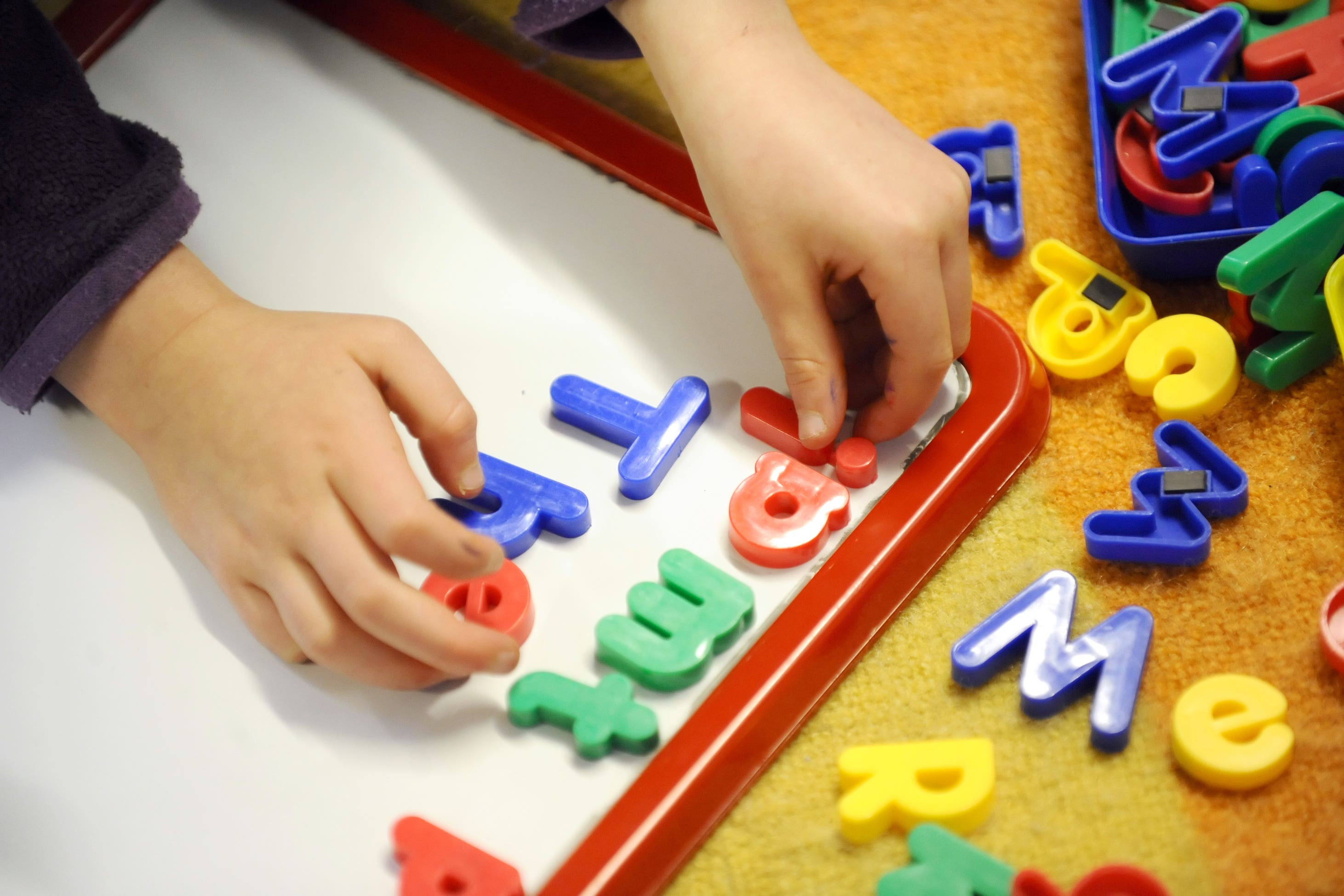Labour’s childcare plans ‘have not been cut back and will be on scale of NHS’
Party’s education spokesperson denies reports of intervention from shadow chancellor Rachel Reeves

Your support helps us to tell the story
From reproductive rights to climate change to Big Tech, The Independent is on the ground when the story is developing. Whether it's investigating the financials of Elon Musk's pro-Trump PAC or producing our latest documentary, 'The A Word', which shines a light on the American women fighting for reproductive rights, we know how important it is to parse out the facts from the messaging.
At such a critical moment in US history, we need reporters on the ground. Your donation allows us to keep sending journalists to speak to both sides of the story.
The Independent is trusted by Americans across the entire political spectrum. And unlike many other quality news outlets, we choose not to lock Americans out of our reporting and analysis with paywalls. We believe quality journalism should be available to everyone, paid for by those who can afford it.
Your support makes all the difference.Labour‘s plans for childcare reform have not been cut back and will represent change on the scale of the creation of the NHS, the party’s education spokesperson has said.
In June, it was reported that the opposition had ruled out an ambition to bring in universal childcare for all young children from nine months to 11 years old – and could instead means-test support.
It had previously promised “comprehensive support from the end of parental leave right to the end of primary school”.
But speaking ahead of an official announcement of Labour’s policy later this week, shadow education secretary Bridget Phillipson said the change would still be “on a scale with the NHS” and denied it had been cut.
Asked about claims that Labour’s spending rules had led to shadow chancellor Rachel Reeves intervening to scale back the plans, the shadow education secretary told Sky News’s Sophie Ridge on Sunday programme: “Nothing has happened in that way. I am absolutely determined to deliver early years education and childcare reform. It is a major priority for me, it will be a big priority for the next Labour government, and I know it is for Rachel too.”
Pressed on her previous claim that the reforms would be similar in scale to the birth of the NHS in the 1940s, she told the programme: “What I was talking about was the permanent shift that we need to see, where we treat early years education and childcare as an integral part of our education system.
“That is the permanent shift that I want to see on a scale with the NHS, because what we have in this country is early years education somewhere over here – not integral to the education system – that is very different to most other European countries.”
Ms Phillipson did not specifically say whether support would be means-tested or not, but added that the government’s recent announcement that it would put more money into childcare represented a “better baseline” from which to build further assistance for families.
She confirmed the party would be saying more about its plans later this week.
In September, the shadow education secretary told the Evening Standard that Labour’s plans would provide “comprehensive support from the end of parental leave right to the end of primary school” and recognise “how modern families live their lives today”.
And in January this year, she told the Sunday Times that Labour would create “a modern system that runs from the end of parental leave right through to the end of primary school” that would be “like the change that we saw post-1945 with the creation of the NHS”.
Currently, parents who work more than 16 hours a week and earn less than £100,000 can get 30 hours free childcare a week for children aged three to four.
But childcare is expected to be a major battleground at the next general election, with the main parties setting out their stalls.
The government has said the current free entitlement will be expanded to cover children from age nine months upwards, though the ambition is being phased in gradually from next spring.
The average price of a full-time nursery place for a toddler under two years old was £14,836 per year as of March 2023, according to a report by the charity Coram. The report says childcare costs have risen by nearly 6 per cent over the past year and that the availability of places has also fallen.
It comes as Labour on Sunday announced it would offer a £2,400 bonus to early-career teachers who complete their training, in a bid to boost recruitment and retention in the sector.
But, speaking on Sunday, Ms Phillipson would not commit to accepting the findings of the education sector’s independent pay review body, which has reportedly recommended a 6.5 per cent increase for teachers. The government is refusing the pay award and teachers are striking as a result.
She told the BBC’s Sunday With Laura Kuenssberg programme: “Labour governments always want to prioritise education and make sure we properly support people working in teaching with fair and affordable pay settlements.
“But who knows what the situation will be if we win that election because the Conservatives crashed the economy, have behaved utterly recklessly, and that will present some tough choices.”
Join our commenting forum
Join thought-provoking conversations, follow other Independent readers and see their replies
Comments